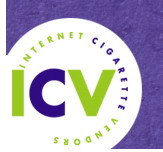 On October 30, the New York City Council passed new legislation raising the minimum age to buy cigarettes from 18 to 21. HPDP Research Fellow Kurt Ribisl and project manager Ashley Leighton submitted testimony to the city council in favor of the legislation, and research led by Ribisl at the UNC Center for Health Promotion and Disease Prevention was used to inform the council about the risks of youth smoking. HPDP continues to work to reduce tobacco use among minors and provides resources for policymakers and practitioners in tobacco cessation and cancer prevention.
On October 30, the New York City Council passed new legislation raising the minimum age to buy cigarettes from 18 to 21. HPDP Research Fellow Kurt Ribisl and project manager Ashley Leighton submitted testimony to the city council in favor of the legislation, and research led by Ribisl at the UNC Center for Health Promotion and Disease Prevention was used to inform the council about the risks of youth smoking. HPDP continues to work to reduce tobacco use among minors and provides resources for policymakers and practitioners in tobacco cessation and cancer prevention.
 Beginning in 1999, the Internet Cigarette Vendor program has spent the last fourteen years working to research and combat online cigarette sales. Led by Kurt Ribisl, PhD, the program gained national recognition after it blew lid off of illegal online cigarette sales to minors in 2006. Since then 33 U.S. states have passed laws regulating Internet and mail order cigarette sales.
Beginning in 1999, the Internet Cigarette Vendor program has spent the last fourteen years working to research and combat online cigarette sales. Led by Kurt Ribisl, PhD, the program gained national recognition after it blew lid off of illegal online cigarette sales to minors in 2006. Since then 33 U.S. states have passed laws regulating Internet and mail order cigarette sales.
The ICV program continues to combat the three major threats of online cigarette sales: sales tax avoidance that deprives states of needed revenue, poor age verification procedures that promote cigarette purchases by minors and easy access to cheap cigarettes that undermines smokers’ efforts to quit.
 The Comprehensive Cancer Control Collaborative (4CNC) is a community based cancer prevention and control program that is funded by the Center for Disease Control and the National Cancer Institute. The 4CNC vision includes community members and researchers working together to reduce the burden of cancer, especially among those disproportionately affected.
The Comprehensive Cancer Control Collaborative (4CNC) is a community based cancer prevention and control program that is funded by the Center for Disease Control and the National Cancer Institute. The 4CNC vision includes community members and researchers working together to reduce the burden of cancer, especially among those disproportionately affected.
Led by Jennifer Leeman, DrPH, the program provides training and technical assistance to organizations that would like to apply proven effective strategies for preventing cancer, promoting early detection and leading people to high quality treatment and survivorship care. It’s one of ten centers nationwide that comprise the Cancer Prevention and Control Research Network.
 The Cancer Prevention and Control Research Network works to create and enhance large-scale cancer prevention programs that reach underserved populations in North Carolina. Led by Bryan Weiner, PhD, CPCRN works to accelerate the adoption of evidence based cancer prevention and control.
The Cancer Prevention and Control Research Network works to create and enhance large-scale cancer prevention programs that reach underserved populations in North Carolina. Led by Bryan Weiner, PhD, CPCRN works to accelerate the adoption of evidence based cancer prevention and control.
The program is part of a national Prevention Research Center network of academic, public health, and community partners who work together to reduce the burden of cancer. The network works to conduct community-based participatory cancer research across the network’s ten research centers.
 The Counter Tobacco Program is a research program based out of the UNC School of Public Health that focuses on reducing tobacco sales. As tobacco companies spend a majority of their marketing funds on developing retail environments, Counter Tobacco combats tobacco sales and marketing at the products’ point of sale.
The Counter Tobacco Program is a research program based out of the UNC School of Public Health that focuses on reducing tobacco sales. As tobacco companies spend a majority of their marketing funds on developing retail environments, Counter Tobacco combats tobacco sales and marketing at the products’ point of sale.
The main tenets of the program are to raise cigarette excise taxes, implementing clean indoor air laws, cessation and launching hard-hitting counter-marketing campaigns. Since Counter Tobacco began in August 2011, Founder Kurt Ribisl, PhD, and Allison Meyers, MPH, have worked with legislators across the US to reduce tobacco sales.
